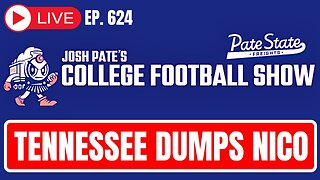Premium Only Content

Mastering ISF Compliance: Streamline Your Customs Clearance Process
ISF Checklist || 805-970-7918 || contact@isfchecklist.com || www.isfchecklist.com
In today's video, we deep dive into the world of customs brokerage and discuss best practices for Importer Security Filing (ISF) compliance. We begin by explaining the concept of customs brokerage, which involves facilitating and expediting the import and export of goods while ensuring compliance with customs regulations. Obtaining a customs bond is a crucial aspect of customs brokerage, as it serves as a financial guarantee for the payment of duties, taxes, and fees, as well as compliance with customs regulations.
Moving on to ISF compliance, we explain that it is a mandatory requirement by US Customs and Border Protection (CBP) that requires importers to provide specific information about their shipments before they arrive at the US port of entry. We emphasize the importance of understanding and following ISF regulations to avoid delays and penalties.
Next, we delve into some best practices for ISF compliance. We stress the importance of effective communication among all relevant parties, such as customs brokers and freight forwarders, to ensure prompt and accurate sharing of information, preventing delays or misunderstandings. We highlight the benefits of implementing an integrated software system, which simplifies data entry, automates compliance checks, and provides real-time visibility into import shipments.
Conducting periodic internal audits is another vital strategy we discuss. By reviewing ISF filings regularly, importers can identify any potential compliance issues and take corrective actions proactively. Staying updated on the latest customs regulations and requirements is also essential, as customs regulations can change frequently, and being aware of any revisions or updates is crucial.
Engaging the services of an experienced customs broker is strongly recommended, as they are experts in customs clearance and can provide valuable guidance throughout the ISF compliance process. Finally, conducting ongoing training and education for staff members ensures that everyone involved understands their responsibilities and stays updated on ISF compliance requirements.
In summary, by incorporating these best practices for ISF compliance, importers can streamline their customs clearance process, avoid delays and penalties, and ensure a smooth import experience. Effective communication, integrated software systems, periodic internal audits, staying updated on customs regulations, engaging an experienced customs broker, and providing ongoing training to staff are all key strategies to achieve ISF compliance.
#usimportbond #isfcustomsbroker #uscustomsclearing
#isfentry
Video Disclaimer Here: This video is purely educational and has no ties with the US government.
00:41 - Customs Brokerage
01:01 - Customs Bond
01:31 - Importer Security Filing (ISF)
03:58 - Customs Regulations
05:13 - Summary
-
 1:14:47
1:14:47
Josh Pate's College Football Show
7 hours ago $4.44 earnedTennessee & Nico Disaster | Portal Chaos Ahead | Biggest “What-Ifs” | Truth About Big Noon Kickoff
49K6 -
 2:14:43
2:14:43
Tundra Tactical
7 hours ago $4.45 earned$3200 ZEV HEARTBREAKER Contest!!! TONIGHT On The Worlds Okayest Gun Live Stream
40.8K -
 3:52:05
3:52:05
IcyFPS
5 hours ago🟢SOLO LEVELING LIVE 🟢 PREMIUM PAYDAY | SUNDAY GUNDAY |
29.9K2 -
 3:49:54
3:49:54
Damysus Gaming
5 hours agoWeaving into the Deep South: South of Midnight First Play!
23.4K2 -
 5:24:51
5:24:51
EricJohnPizzaArtist
7 hours agoAwesome Sauce PIZZA ART LIVE Ep. #43: Misses Ma’am!
38.1K6 -
 54:59
54:59
Stephen Gardner
11 hours ago🔥Biden insider: Obama was Pulling Strings | Trump Derangement is RAGING!
81.3K268 -
 5:51:22
5:51:22
Delnorin Games
8 hours ago🔴 Live - Star Citizen
42K -
 1:07:23
1:07:23
Vedic compatability astrology
6 hours agoDiscover Wisdom from Dr. Andrew Dutta!
21.5K -
 4:52:51
4:52:51
LFA TV
1 day agoLFA TV SHORT CLIPS OF THE WEEK!
73.6K8 -
 4:12:52
4:12:52
Pepkilla
12 hours agoAI has taken over come with me if you want to live
64.4K3